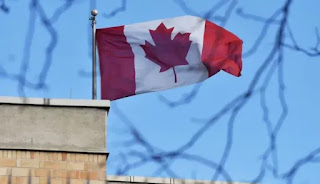Earlier this year, China executed four Canadian nationals on drug-related charges, Canadian authorities have confirmed. All of the individuals involved held dual citizenship, and their identities have not been disclosed, according to Canadian Foreign Minister Mélanie Joly.
In response, a Chinese embassy spokesperson in Canada urged Ottawa to "cease making irresponsible remarks," as diplomatic tensions between the two countries have heightened after years of strained relations. The Chinese embassy maintained that there was "solid and sufficient" evidence to support the charges against the individuals and emphasized that Beijing had "fully ensured the rights and interests" of the Canadian citizens involved. The embassy further called on Canada to respect China’s "judicial sovereignty."
China does not recognize dual citizenship and adopts a stringent approach toward drug-related offenses. Joly revealed that she had been monitoring the cases "very closely" for several months and had worked alongside officials, including former Prime Minister Justin Trudeau, to prevent the executions.
Charlotte MacLeod, a spokesperson for Global Affairs Canada, stated that the Canadian government had "repeatedly called for clemency for these individuals at the highest levels" and reaffirmed Canada’s consistent opposition to the death penalty in all cases, everywhere.
China enforces the death penalty for serious crimes, including drug trafficking, corruption, and espionage. While the exact number of executions is a state secret, human rights organizations believe that China has one of the highest execution rates globally. Executions of foreign nationals, however, remain relatively rare.
The news of the executions has sparked significant criticism from human rights organizations. Ketty Nivyabandi of Amnesty International Canada condemned the executions as "shocking and inhumane" and urged Canadian authorities to consider this a "wake-up call." Nivyabandi expressed solidarity with the victims' families, emphasizing the devastation they must endure while processing the loss.
Additionally, concerns were raised for other Canadians who remain on death row in China or whose whereabouts within the Chinese prison system are unknown.
In 2019, Robert Lloyd Schellenberg, a Canadian national, was sentenced to death in China for drug smuggling. His case garnered international attention and condemnation from the Canadian government, although he was not among those executed this year. Foreign Minister Joly reiterated Canada's commitment to calling for leniency for other Canadians facing similar charges.
Relations between Canada and China have been fraught since 2018 when Canada detained Chinese telecom executive Meng Wanzhou at the request of the United States. In retaliation, China arrested two Canadians, though they have since been released.
In recent months, tensions have further escalated as Canadian media, citing leaked intelligence, reported on alleged Chinese interference in Canada's last two federal elections. China dismissed these claims as "baseless and defamatory." Moreover, China has imposed retaliatory tariffs on certain Canadian agricultural and food products in response to Canada’s trade restrictions on Chinese electric vehicles, steel, and aluminum.
Source; theghanareport

Comments
Post a Comment